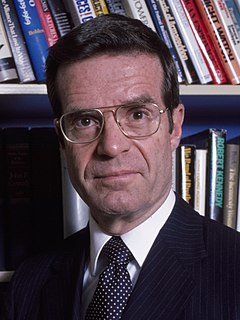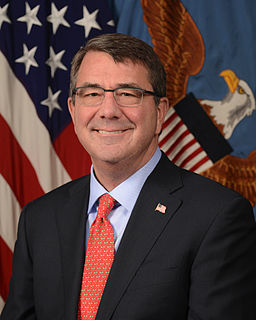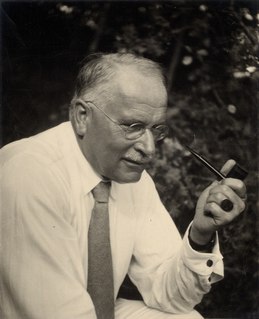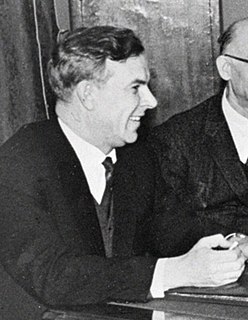A Quote by Theodore C. Sorensen
We will always apply the same principles of collective security, prudent caution, and superior weaponry that enabled us to peacefully prevail in the long cold war against the Soviet Union.
Related Quotes
NASA was invented as a response to Cold War steps. There are those who presumed that we went to the moon because we're explorers. We went to the moon because we were at war with the Soviet Union. And so when it became clear that they (Soviet Union) were not going to the moon, we're done with the moon.
During the Cold War, tensions between the West and the Soviet Union affected virtually all countries worldwide. As a result, throughout Latin America, guerrilla groups emerged, seeking to destabilize military dictatorships and attain democracy, freedom, and policy reform - goals that they believed could not be achieved peacefully.
To have security against atomic bombs and against the other biological weapons, we have to prevent war, for if we cannot prevent war every nation will use every means that is at their disposal; and in spite of all promises they make, they will do it. At the same time, so long as war is not prevented, all the governments of the nations have to prepare for war, and if you have to prepare for war, then you are in a state where you cannot abolish war.
We've always had this experience that things take long, but I'm 100% convinced that our principles will in the end prevail. No one knew how the Cold War would end at the time, but it did end. This is within our living experience... I'm surprised at how fainthearted we sometimes are and how quickly we lose courage.
This much I would say: Socialism has failed all over the world. In the eighties, I would hear every day that there is no inflation in the Soviet Union, there is no poverty in the Soviet Union, there is no unemployment in the Soviet Union. And now we find that, due to Socialism, there is no Soviet Union!
Kennedy was significantly different than Eisenhower before him, and different from Johnson after him. So those three years were the beginning of a détente with the Soviet Union, a new feeling for peace, a seeking out of a new ally with the Soviet Union - the end of the Cold War, as Kennedy called it in his American University speech.
KGB was inseparable part of the Soviet Union and the whole structure of the Soviet society. We believe that the achievements of the Soviet Union and of the Soviet society, it's main achievements until the split in 1991, it was at the same time the main achievements of the KGB, because it was working for the same cause.




































